
Carl Lee Perkins was an American guitarist, singer and songwriter. A rockabilly great and pioneer of rock and roll, he began his recording career at the Sun Studio, in Memphis in 1954. Among his best known songs are Blue Suede Shoes, Honey Don't, Matchbox and Everybody's Trying to Be My Baby.

Big Star was an American rock band formed in Memphis, Tennessee in 1971 by Alex Chilton, Chris Bell, Jody Stephens (drums), and Andy Hummel (bass). They have been described as the "quintessential American power pop band", and "one of the most mythic and influential cult acts in all of rock & roll". In its first era, the band's musical style drew influence from 1960s acts such as the Beatles and the Byrds, producing a style that foreshadowed the alternative rock of the 1980s and 1990s. Before they broke up, Big Star created a "seminal body of work that never stopped inspiring succeeding generations" according to Rolling Stone. Three of Big Star's studio albums are included in Rolling Stone's lists of the "500 Greatest Albums of All Time".

Radio City is the second studio album by the American rock group Big Star. Released on February 20, 1974, Radio City was recorded during 1973 at Memphis' Ardent Studios. Though not a commercial success at the time, it is now recognized as a milestone album in the history of power pop music. Critically acclaimed upon its release, the record sold poorly, partly due to a lack of promotion and the distribution problems of the band's struggling record label, Ardent Records. The album included "September Gurls" and "Back of a Car", which remain among the most famous Big Star songs; both the Searchers and the Bangles have covered "September Gurls".

Tres Hombres is the third studio album by the American rock band ZZ Top, released on July 26, 1973, by London Records. It was the band's first collaboration with engineer Terry Manning. The album would be ZZ Top's commercial breakthrough in the United States charts. It peaked at number 8 on the Billboard 200 albums chart in 1974. Its lead single "La Grange" reached number 41 on the Billboard Hot 100. It is the first of many ZZ Top albums to incorporate the use of Spanish terminology in their branding. "Tres Hombres" means "three men" in Spanish.
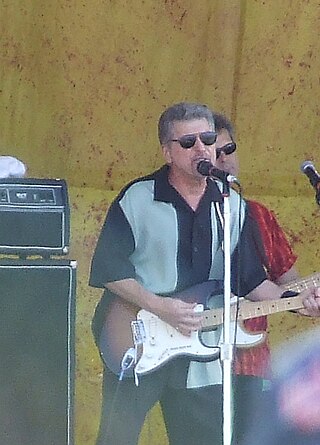
Johnny Rivers is an American retired musician. He achieved commercial success and popularity throughout the 1960s and 1970s as a singer and guitarist, characterized as a versatile and influential artist. Rivers is best known for his 1960s output, having popularized the mid-60s discotheque scene through his live rock and roll recordings at the Los Angeles nightclub Whisky a Go Go, and later shifting to a more orchestral, soul-oriented sound during the latter half of the decade. These developments were reflected by his most notable string of hit singles between 1964 and 1968, many of them covers. They include "Memphis", "Mountain of Love", "The Seventh Son", "Secret Agent Man", "Poor Side of Town", "Baby I Need Your Lovin'", and "Summer Rain". Ultimately, Rivers landed 9 top ten hits and 17 top forty hits on US charts from 1964 to 1977.
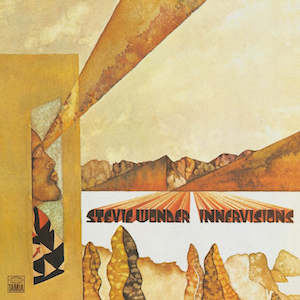
Innervisions is the sixteenth studio album by American singer, songwriter, and musician Stevie Wonder, released on August 3, 1973, by Tamla, a subsidiary of Motown Records. A landmark recording of Wonder's "classic period", the album has been regarded as completing his transition from the "Little Stevie Wonder" known for romantic ballads into a more musically mature, conscious, and grown-up artist. On the album, Wonder continued to experiment with the revolutionary T.O.N.T.O. synthesizer system developed by Malcolm Cecil and Robert Margouleff, and Innervisions became hugely influential on the future sound of commercial soul and black music.
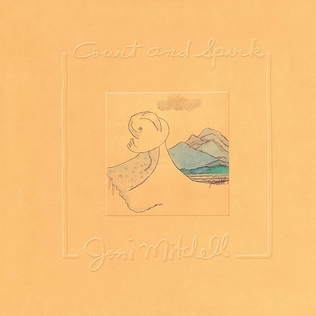
Court and Spark is the sixth studio album by Canadian singer-songwriter Joni Mitchell. Released by A&M in January 1974, it infuses the folk rock style of her previous albums with jazz elements.

Class of '55: Memphis Rock & Roll Homecoming is a collaborative studio album by Roy Orbison, Johnny Cash, Jerry Lee Lewis, and Carl Perkins. It was released on May 26, 1986, by America/Smash Records, a subsidiary of Polygram Records. The album was produced by Chips Moman.

The Bar-Kays is an American funk band formed in 1964. The band had dozens of charting singles from the 1960s to the 1980s, including "Soul Finger" in 1967, "Son of Shaft" in 1972, and "Boogie Body Land" in 1980.
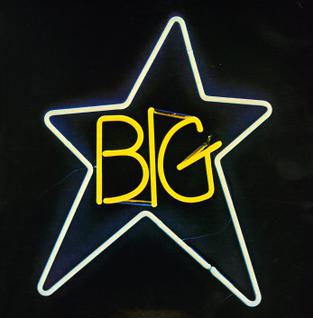
#1 Record is the debut album by the American rock band Big Star. It was released on April 24, 1972, by Memphis-based Ardent Records.
Brian Alexander Robertson is a Scottish musician, composer and songwriter. He had a string of hits in the late 1970s and early 1980s characterised by catchy pop tunes and jaunty humorous lyrics, including "Kool in the Kaftan", Knocked It Off", "To Be or Not to Be" and "Bang Bang", a tongue-in-cheek commentary on famous historical and fictional couples. He wrote with Mike Rutherford of Genesis the Grammy-nominated and Ivor Novello Award-winning "The Living Years". It was a number one hit in the US, Canada, Australia and Ireland and reached number 2 in his native UK. He has also written music for films and been a television presenter.
Georg Johan Tjegodiev Kajanus is a Norwegian composer and pop musician, best known as the lead singer and songwriter of the British pop group Sailor.

Buffalo Springfield is a compilation album released on Atco Records in 1973. It is the fifth album by rock band Buffalo Springfield, and their second compilation. It was assembled by the label well after the band had broken up at a time when Crosby, Stills, Nash & Young were quite popular and had not released any new material as a group for over two years, with their 1974 reunion tour eight months away. It features a nine-minute extended version of the song "Bluebird" by Stephen Stills, only available elsewhere on the Warner Special Products LP compilation "Heavy Metal – 24 Electrifying Performances", released in 1974. It has never been issued on compact disc and is currently out of print.

Pack Up the Plantation: Live! is the first official live album by Tom Petty and the Heartbreakers, released in November 1985 by MCA Records. It was released as a double LP and, in slightly truncated form, a single cassette or compact disc. A concert film of the same name was released on home video in 1986. Stevie Nicks sings on two songs, including the US single "Needles and Pins", which reached No. 37 on the Billboard Hot 100.
"Superstar" is a 1969 song written by Bonnie Bramlett and Leon Russell, that has been a hit for many artists in different genres in the years since. The best-known versions are by the Carpenters in 1971, Luther Vandross in 1983, and Sonic Youth in 1994.

Love Is the Foundation is the twenty-third solo studio album by American country music singer-songwriter Loretta Lynn. It was released on August 13, 1973, by MCA Records.
Philip Stuart Pickett is an English songwriter, musician, vocal arranger, producer and artist manager.

Initial Success is the third studio album by Scottish musician BA Robertson, released on 7 March 1980 by Asylum Records. The album peaked at number 32 on the UK Albums Chart and several singles were released, including the top 10 hits "Bang Bang", "Knocked It Off" and "To Be or Not to Be". The album was reissued on CD on 12 May 2017 by Cherry Red Records and includes several of the singles' B-sides as well as songs performed live at the 2004 Edinburgh Fringe Festival.
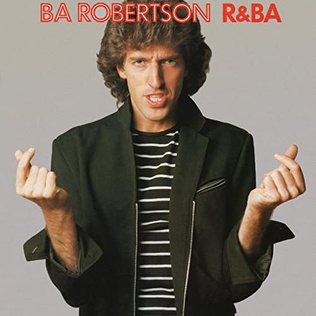
R&BA is the fifth and final studio album by Scottish musician BA Robertson, released in June 1982 by Asylum Records. Unlike his previous two albums, it failed to chart, despite the success of some of its singles. The album was reissued on CD on 12 May 2017 by Cherry Red Records which included several bonus tracks.

Woman Across the River is an album by the American blues musician Freddie King, released in 1973. It was the last of three albums King made for Shelter Records. King's three Shelter albums were re-released as a collection titled King of the Blues.
















